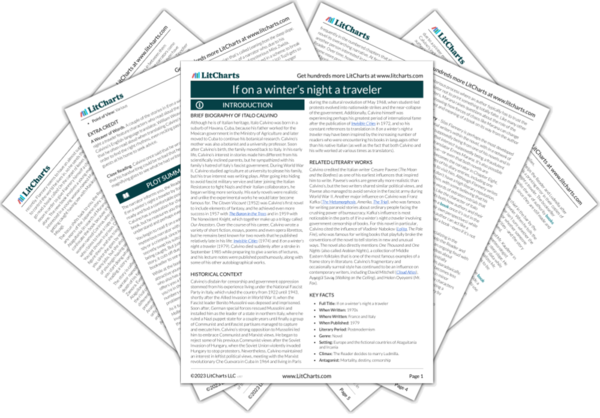The
narrator begins copying lines from
Crime and Punishment to try to see what makes a good beginning. He gets a visit from a man claiming to be his translator, warning him that unauthorized translations of his books have been popping up recently—but in fact these books aren’t anything the narrator himself has ever written. The narrator acts insulted by the fakes, but in fact a part of him is intrigued and perhaps even flattered. He learns that his translator’s name is
Ermes Marana.
